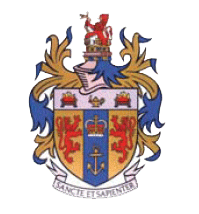| School | Troops | Resources |
Economics at King's College London

[Note: Part of the HET Website. This page is not related to or endorsed by King's College, the University of London or any other organization. See the official King's College, London website]
King's College, London (KCL) was founded in 1828/9 by a group of Tory fathers under the leadership of the then-prime minister Arthur Wellesley (Duke of Wellington). It was the orthodox Anglican answer to the non-conformist University College London (UCL). King's College was originally set up on the east side of Somerset House on the Strand and, although it did allow the attendance of Dissenters, Jews, and others, only professing Anglicans could hold offices or professorships.
In 1836, both King's and University colleges joined forces as the founding schools of the University of London system. Religious tests would remain in force at King's until 1903.
Although King's College has never had an economics department, it had an important role in the history of economic thought for hosting pioneering professorships in the political economy in the 19th C. In 1831, following on the recent footsteps of Oxford, Cambridge and UCL, King's College set up a professorship in political economy. The first holder, Nassau William Senior, was controversially forced to resign shortly after for having published a pamphlet recommending the transfer of some of the revenues of the (Protestant) Church of Ireland to support the Roman Catholic institutions of the island. With benefactors threatening to withdraw their funding from the fledgling institution, Senior stepped down. He was replaced by Richard Jones, who would hold the chair until 1835, when he departed to succeed Malthus at the East India College in Haileybury. The chair fell subsequently vacant.
In 1853, on popular demand, Leone Levi was invited to prepare a set of lectures on commerce and commercial law, but an formal appointment withheld until 1855, when Levi entered the Church of England.
In 1859, a public subscription by admirers Thomas Tooke led to the creation of the Tooke Professorship of Economic Sciences and Statistics at King's College. The emolument was meager (a mere £50) and the condition was at least twenty public lectures per year, of which ten would be given in the evening to allow the working public to attend. The appointments were managed by the Tooke Memorial Committee, headed by Tooke's friend, William Newmarch.
The first holder of the Tooke chair was J.E. Thorold Rogers, who would hold that chair (simultaneously with the Drummond Professorship at Oxford) until 1890. He was succeeded by F.Y. Edgeworth and, a year later, the Cambridge historicist, William Cunningham.
In 1873, the Gilbart Lectures on Banking were inaugurated by King's College, named after J.W. Gilbart and aimed largely and City bankers and clerks. In 1874, the Statistical Society of London, in which Newmarch, Rogers, Levi, Guy and others had been so active, moved to new facilities on the King's College campus.
In 1919, during E.J. Urwick's tenure as Tooke Professor, a deal was reached between King's College and the L.S.E. transferring the Tooke Professorship to the latter, in return for a chair in palaeography. As part of the deal, King's College committed not to teach economics, and LSE not to teach languages. The rough purpose was to prevent overlap between the two University of London colleges and allow the LSE to specialize in social sciences and KCL in sciences and humanities. Although the deal was revised in 1935, to this day, King's College does not have an economics department.
After Urwick death in 1908, the Tooke Professorship at L.S.E. fell into intermittent abeyance. It was revived in 1931 for Friedrich Hayek, then again in 1958 for A.W. Phillips and once more in 1982 for the econometrician Denis Sargan.
|
Professor of Political Economy Tooke Professorship in Economic Sciences and Statistics
|
HET
|
|
Resources on Tooke Chair
|
All rights reserved, Gonçalo L. Fonseca
